Discover how the Florida Institute for Political Leadership can prepare you for public service with their non-partisan campaign training. Learn about local office elections and community involvement opportunities for 2024.
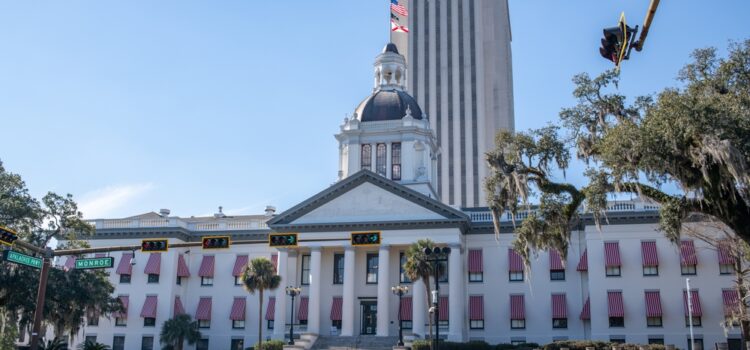

Discover how the Florida Institute for Political Leadership can prepare you for public service with their non-partisan campaign training. Learn about local office elections and community involvement opportunities for 2024.
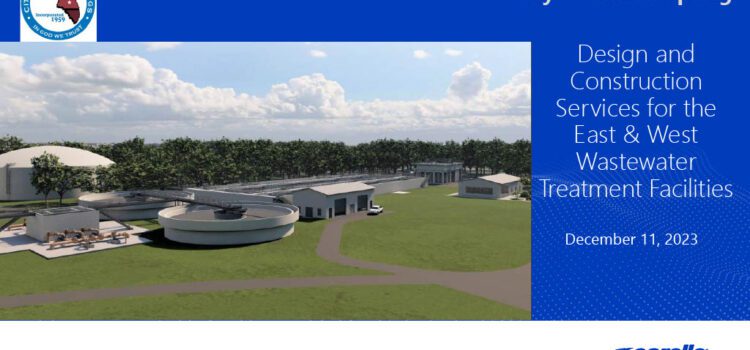
Commissioner Victoria Colangelo shares exciting news about Winter Springs’ commitment to modernizing our city’s infrastructure. The City Commission’s approval on December 11, 2023, for the design and construction services of the East & West Wastewater Treatment Facilities marks a significant step forward. This project, more than just a design scope, includes detailed development, permitting assistance, and community outreach. It’s a proactive approach to ensuring reliable and efficient wastewater treatment, aligning with our city’s growth and regulatory compliance needs. This initiative underscores our dedication to building a resilient and sustainable future for Winter Springs.
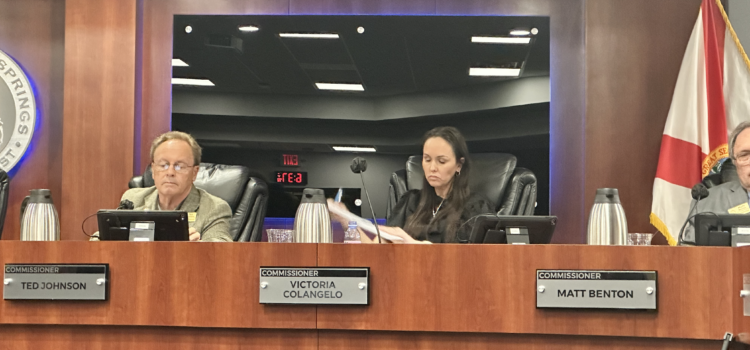
One of the major pillars of my campaign was the promise to make City Commission meetings more efficient by not letting them run into the wee hours of the morning. However, shortly after my election in November, the Winter Springs City Commission repealed an ordinance setting a time limit for the end of meetings.
On February 13, 2023, the commission voted to repeal the existing ordinance, which stated, “Time of adjournment. Reserved. Unless sooner adjourned by majority vote of the city commission, the mayor shall adjourn the commission meeting at 8:30 p.m…” and so forth. This repeal passed with a vote of 3-2; I voted against it.
The result? In just the last 30 days, we’ve had two meetings that ended after 1AM. The lack of a time limit is detrimental to both the commissioners and the public. It’s hard for anyone to make rational decisions or be fully engaged at that hour.
I firmly believe that we need to be conscious of how we use our time in meetings for the sake of efficiency and efficacy. The removal of time constraints runs counter to that principle. It’s time for a wake-up call, Winter Springs. Let’s put this issue back on the agenda and ensure that our meetings are both effective and respectful of everyone’s time.
If you, too, believe that meetings should have a reasonable end time for the benefit of all involved, make your voice heard. Contact your commissioners, attend the next city meeting, or reach out on social media.
Let’s strive to create an environment that enables not just the commissioners but also the public to participate meaningfully in the democratic process.

Hello, Winter Springs residents!
Our city recently underwent another audit, and as part of my commitment to transparency and accountability, I want to help you make sense of the findings and what they mean for us all. Below, I’ve summarized the key issues and recommendations made in the audit.
Regulatory Violations: The Florida Department of Environmental Protection (FDEP) has identified multiple violations at both of the City’s wastewater reclamation facilities, East WRF and West WRF. These range from unauthorized wastewater discharges to inoperable wastewater treatment systems.
Financial Implications: Violations have led to civil penalties that the City must either pay or invest in pollution prevention projects. As of June 2023, a total of $318,372 has been incurred in costs and penalties, which impacts the City’s financial standing.
Operational Challenges: The City has taken steps to correct some of these violations, but the continued occurrence of problems indicates systemic issues that need to be addressed. There’s also the potential risk of reputational damage and lawsuits.
City Recommendation: To comply with the audit’s recommendations, the City should work on immediate corrective actions to ensure that all FDEP rules are strictly followed. This could involve a detailed review of the contractor’s operational protocols, the condition of equipment, and compliance with federal and state regulations. Urgent training for the personnel may also be essential.
Monitoring and Oversight: The City’s delayed actions in contracting an independent engineering firm for auditing the water utility contractor’s performance might have contributed to the issues identified in Finding 1.
Operational Inefficiencies: The findings from the engineering firm’s delayed report highlight issues like ineffective communication protocols and outdated utility facilities that require attention.
Contractual and Regulatory Compliance: Without effective monitoring, the City cannot ensure that the contractor is in full compliance with the terms of the contract or state laws and rules.
The City should establish robust policies and procedures for regular oversight of the contractor’s performance. Annual, if not more frequent, evaluations by an independent engineering firm should be made mandatory, as per the contract terms. The City should also facilitate a transparent and prompt communication system with the contractor to resolve any operational issues swiftly.
The City received sales surtax collections for infrastructure projects but diverted these funds to projects that were not initially approved or discussed publicly. The lack of transparency and public discussion regarding project reallocations could erode public trust.
Reallocated Funds: City Commission approved the reallocation of $12.8 million from originally proposed projects to other ventures without individual discussion in publicly noticed meetings.
Unaccounted Funds: $2 million transferred from the Road Improvements Special Revenue Fund to the Water and Sewer Utility Fund did not have separate accounting, making it unclear if the funds were used for approved projects.
Public Trust: Changes in project lists and expenditure may not align with public expectations set at the time of the sales surtax referendum.
Transparency: Inclusion of significant sales surtax reallocations in the City Commission’s consent agenda reduced transparency and deprived the public of the opportunity for discussion.
Include items with significant financial impacts, like the infrastructure sales surtax, as discussion items in the agenda rather than consent agenda items.
Expend sales surtax collections in a manner consistent with public expectations.
Provide separate accounting for transferred sales surtax collections to other City funds.
According to the State’s Sunshine Law and City resolution, the City of Winter Springs is obligated to provide public records upon request, potentially charging a reasonable fee if the request demands extensive resources. However, the City’s practices are inconsistent with these requirements, as evidenced by an audit of 217 public records requests received between October 1, 2021, and December 31, 2022.
Response Time: The City took an average of 29 business days to fulfill 38 requests, attributing the delays to factors like staff schedules and official City business. However, no standard time frame for request completion exists, and requestors were not notified of delays.
Cost Estimation: Six requests were priced between $21 and $3,895 based on estimated labor costs, but no record was kept to justify these estimates. As a result, the requesters did not proceed with payment.
Lack of Transparency: City personnel could not provide documentation to support how cost estimates were calculated. Additionally, no policies exist for tracking the actual time spent on fulfilling public records requests.
Public Trust: The City’s current practices could erode public trust and compromise transparency.
Legal Compliance: The lack of documentation and guidelines may result in non-compliance with State laws concerning public records.
Establish a standard time frame for fulfilling public records requests and notify requesters if delays are expected.
Require that documentation be maintained to justify the estimated and actual costs for fulfilling requests requiring extensive resources.
The City ordinances mandate that all purchases must adhere to uniform purchasing policies established by the City Manager. However, these uniform policies were not available during the audit period, and multiple instances of non-compliance with ordinances and transparency issues were noted.
City Ordinance Requirements: City ordinances require uniform purchasing policies and procedures established by the City Manager. Purchases less than $50,000 can be authorized by the City Manager, while those above require City Commission approval.
Absence of Uniform Policies: Despite requests, City personnel failed to provide the auditors with written uniform purchasing policies as required by the City ordinance.
Discrepancies and Exemptions: There were instances where competitive processes were not followed, such as:
High Vendor Payments: From October 1, 2021, to September 30, 2022, the City made payments totaling $15.7 million to 59 vendors. Issues were found in purchases totaling $4.9 million from 14 vendors.
Transparency and Fairness: Due to the absence of defined policies, there were instances of unfair and non-transparent procurement processes.
Policy Formation: The City Manager should establish written uniform purchasing policies and procedures as mandated by the City ordinance.
Transparency and Compliance: The City should ensure that all purchases adhere to the new policies and procedures, ensuring that the procurement process is transparent and in accordance with City ordinances.
Competitive Selection: Incorporate a clearly defined process for competitive selection in the policies, which should include a pricing component when applicable.
Monitoring and Audit Trails: The new policies should include a mechanism for monitoring and auditing procurement activities for compliance and effectiveness.
Clarity on Exemptions and Definitions: Clearly define terms such as “professional services” and stipulate the criteria for exemptions from competitive processes.
The City’s audit report on Purchase Cards (P-cards) reveals that while P-cards can serve as a convenient tool for making business-related purchases, they are vulnerable to fraud and misuse. The audit identifies the lack of comprehensive written policies and procedures that should govern the use of these cards. The report emphasizes the importance of internal controls to ensure accountability, especially given that $347,590 was spent through P-cards by 36 City employees between October 1, 2021, and December 31, 2022.
Lack of Comprehensive Policy: City personnel confirmed that there are no comprehensive P-card policies in place. The existing guidelines are limited to what is outlined in a cardholder agreement that each user must sign.
Basic Guidelines Exist but Are Insufficient: A cardholder agreement outlines fundamental aspects like the responsibility for the card, pre-approval of expenditures, and submission of receipts. However, these are not considered comprehensive policies.
Old City Commission Resolution: City personnel provided a City Commission resolution from 2004 that has elements of a P-card policy, but it is not adequate for current needs.
No Documented Supervisory Pre-Approval: Although the cardholder agreement mandates pre-approval of expenditures through managerial supervision, City records showed no evidence that any of the P-card expenditures were pre-approved. The process is verbal, and there is no written record.
Increased Risk of Fraud or Misuse: In the absence of effective controls and policies, there’s an increased risk that unauthorized or inappropriate expenditures could go undetected. The audit did not find any such expenditures, but the risk remains.
Establish Comprehensive Policies: The City should develop a comprehensive written policy that provides guidelines on all significant aspects of P-card usage. This should include, but not be limited to, acceptable uses, vendor types, single purchase limits, daily and monthly limits, and supervisory approval processes.
Document Pre-Approval: In line with the existing cardholder agreement, the City should document the required supervisory pre-approval for each P-card expenditure to reinforce accountability and transparency.
Periodic Reviews: To ensure compliance and detect any unauthorized or inappropriate usage promptly, the Finance Department should conduct periodic reviews of P-card transactions against the established policies.
Finding 7 highlights the challenges arising from significant turnover in key management positions in the City from April 2019 to February 2023. Frequent turnover, especially in critical roles like the City Manager and Finance Director, poses risks to the consistency and effectiveness of internal controls and policy application. The report notes negative workplace environment allegations and Commission interference as some of the factors contributing to the turnover. The issue has had cascading effects, leading to delays in financial audits and substantial unpaid invoices.
High Turnover in Key Positions: Roles such as the City Manager, Finance Director, Chief of Police, and Directors of Public Works and Community Development have seen multiple resignations over a relatively short period.
Negative Workplace Environment: Some personnel who resigned cited issues such as a hostile work environment and questioning of loyalty by Commissioners.
Commission Interference: Instances of Commission interference with City staff were noted. Training to prevent such interference is now part of the City Commissioners’ onboarding process.
Financial and Operational Consequences: The turnover has led to delays, including the incomplete fiscal year 2021-22 financial statement audit, and significant unpaid invoices totaling $1.2 million, affecting the City’s contractual obligations and finances.
Loss of Institutional Knowledge: The frequent changes in leadership have resulted in a loss of critical institutional knowledge, affecting the oversight, application of City policies, and possibly leading to control deficiencies and non-compliance.
City Commission Training: Continue and possibly intensify the training sessions for City Commissioners during their onboarding process, focusing on the importance of non-interference with City staff, as mandated by the City Charter.
Positive Work Environment: Develop and implement policies that actively foster a positive work environment. This could include initiatives aimed at employee well-being, transparent communication channels, and mechanisms for anonymous feedback.
Retention Strategies: Consider creating retention strategies for key management positions, such as competitive compensation packages, opportunities for career development, and offering exit interviews to understand the reasons behind resignations.
Audit Completion and Invoice Settlement: Prioritize the completion of pending audits and settlement of unpaid invoices. This may require interim staffing solutions or external assistance.
Policy Review: Conduct a thorough review of current internal controls and procedures to identify any gaps or inefficiencies that may have arisen due to the turnover. Implement changes as needed to ensure consistent policy application and effective operations.
The City has been given recommendations on how to address these issues, and it’s crucial the city respond to ensure these changes are implemented for the betterment of our community. I’ll keep you updated on developments as they happen.
If you have any questions or want to discuss this further, feel free to reach out. Together, we can build a stronger, more transparent Winter Springs.
Best,
Victoria For Winter Springs
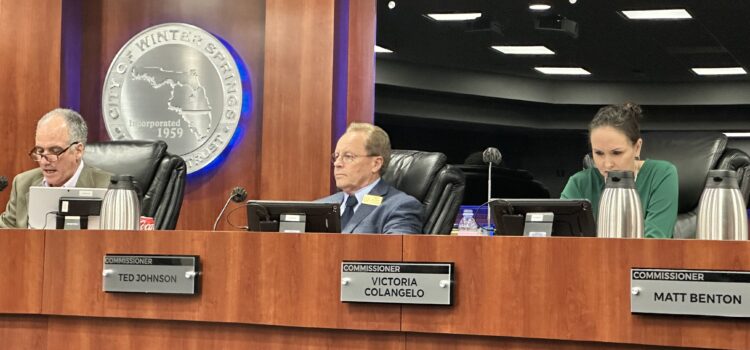
“Commissioner Victoria Colangelo shares her journey in bringing live video streaming of city meetings to Winter Springs, emphasizing the significance of transparency in governance.”
It is with immense pride and gratitude that I share a recent accomplishment in our journey towards enhanced transparency: the inception of live video streaming for city meetings. This has been a passion project of mine, and seeing it come to fruition is truly heartwarming.
When I took office as your City Commissioner, one of my core commitments was to foster an environment of transparency, trust, and accessibility. I believe that every resident has a right to be privy to the decisions being made on their behalf, in real-time. With today’s technology, there’s no reason to hold back from providing this access.
Thankfully, the City of Winter Springs has heeded our collective call. With a proposed timeline of around 90 days to set up the necessary equipment, we’re on track to offer an insider’s view into the workings of our city’s governance. In the interim, I’m pleased to share that you can continue to listen to the audio of meetings at winterspringsfl.org, and many of our meetings are also being generously video streamed by private citizens on the ‘Live Now 32708‘ Facebook page.
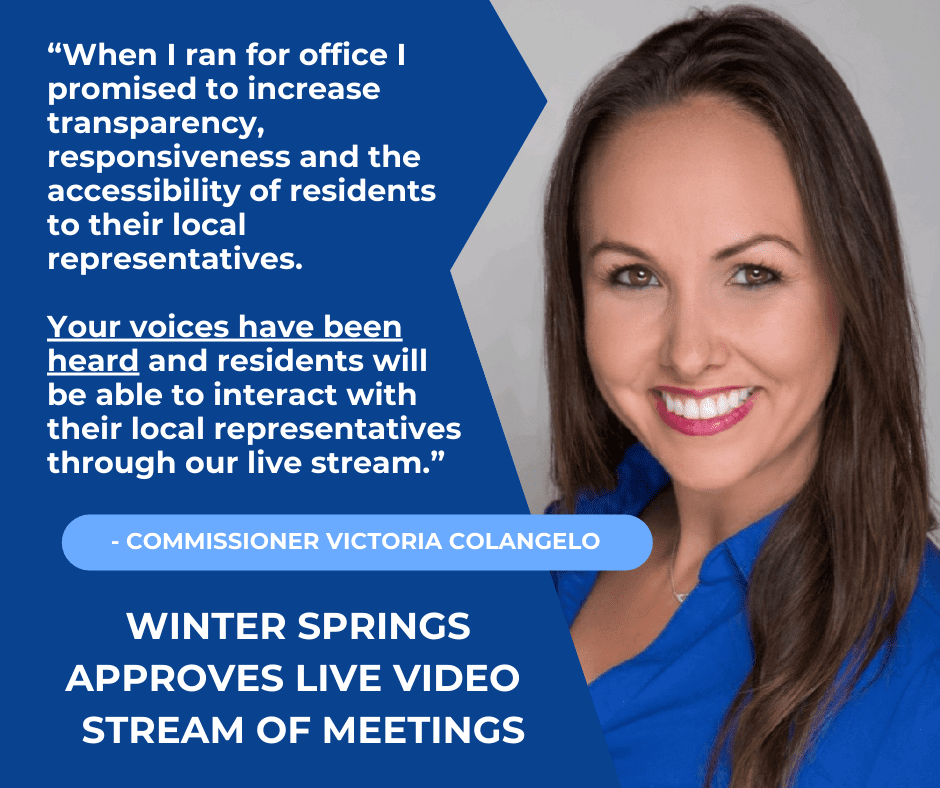
However, I acknowledge that transparency isn’t just about making information accessible; it’s also about clarity and understanding. That’s why I’m here for you, to answer questions, address concerns, and clarify any points of confusion.
It’s always been my mission to ensure that you, the heart and soul of Winter Springs, are always in the know and that your voice resonates in every decision we make. The live streaming of city meetings is just one more step in that direction.
In conclusion, our beloved Winter Springs is evolving, adapting, and setting higher standards in governance, all while putting its community first. I’m honored to be part of this journey and look forward to sharing many more updates with you all.
Warm regards,
Victoria Colangelo
City Commissioner, Winter Springs District 2
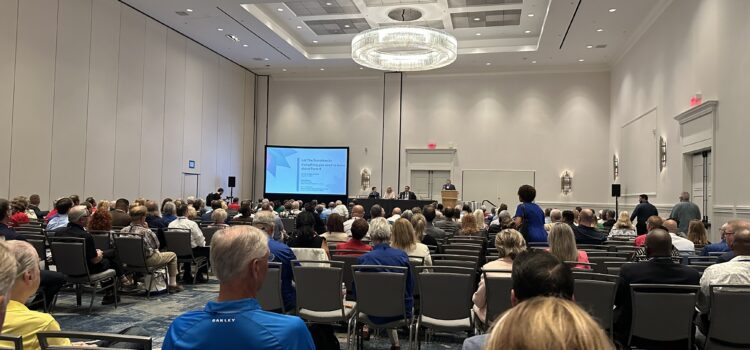
Recently, there’s been a new rule implemented that mandates every elected official in our city, including City Commissioners like myself, to publicly disclose our tax returns and business dealings. As someone who has always been an advocate for transparency, I wholeheartedly support this move. Transparency, after all, is the bedrock of a strong democracy, and this initiative can only deepen the trust between elected officials and you, our valued constituents.
While the idea of sharing personal financial data might seem daunting to some, I believe that when we step into the world of public service, we have a responsibility to lead with integrity and openness. The essence of this new rule is to ensure that there’s no conflict of interest and that we, as public representatives, prioritize the welfare of our community above everything else.
In my tenure as your City Commissioner, I’ve seen firsthand the transformative power of transparency. It encourages greater community engagement, instills confidence, and most importantly, holds us accountable for our actions. By openly disclosing our tax returns and business interests, we’re taking a collective pledge to maintain the high standards of honesty and integrity that you, the residents of Winter Springs, expect and deserve.
The new law mandates that local elected officials no longer file the previously known Form 1 financial disclosure. Instead, they must file “Form 6—Full and Public Disclosure of Financial Interest” with the Florida Commission on Ethics by July 1 of each year.
To satisfy the first requirement, officials have two options:
I want to take this opportunity to share that I am currently in the process of gathering all the necessary documents and will be completing my disclosure at the earliest. I urge my fellow commissioners and elected officials to do the same promptly. It’s not just about compliance; it’s about taking a stand for transparency and ensuring that the interests of our community always come first.
I understand that change, especially one of this nature, may lead to numerous questions and perhaps a few concerns. I invite you to reach out with any queries you might have. As always, I am here to listen, clarify, and act in the best interest of our beloved Winter Springs.
In conclusion, the path to a better and more transparent governance system is paved with such initiatives. Let us all embrace this change and ensure that Winter Springs remains a beacon of trust, community spirit, and forward-thinking governance.

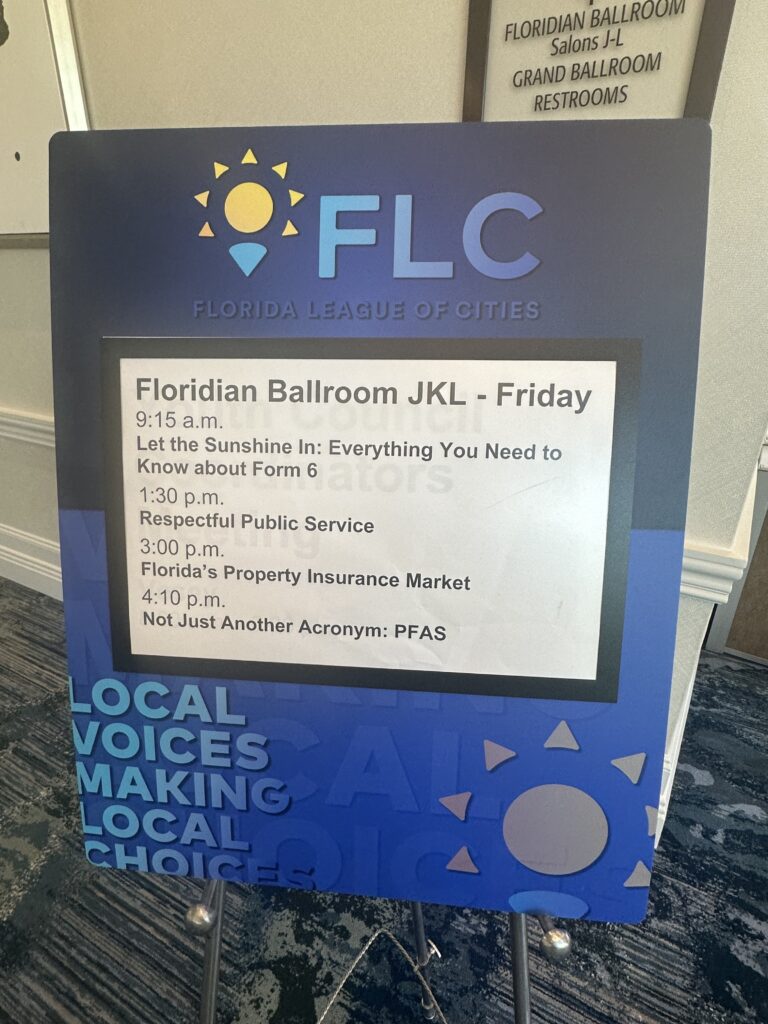
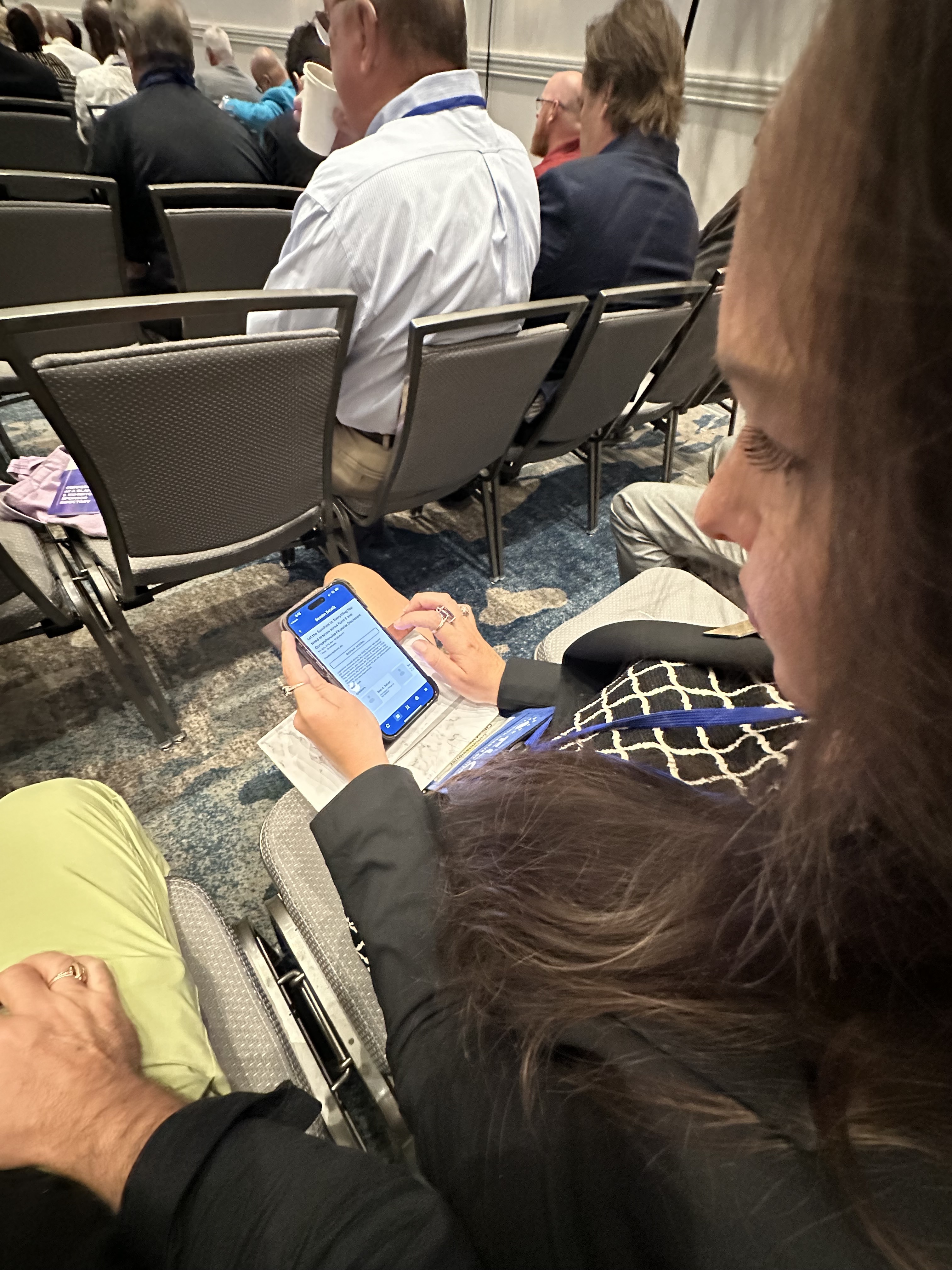
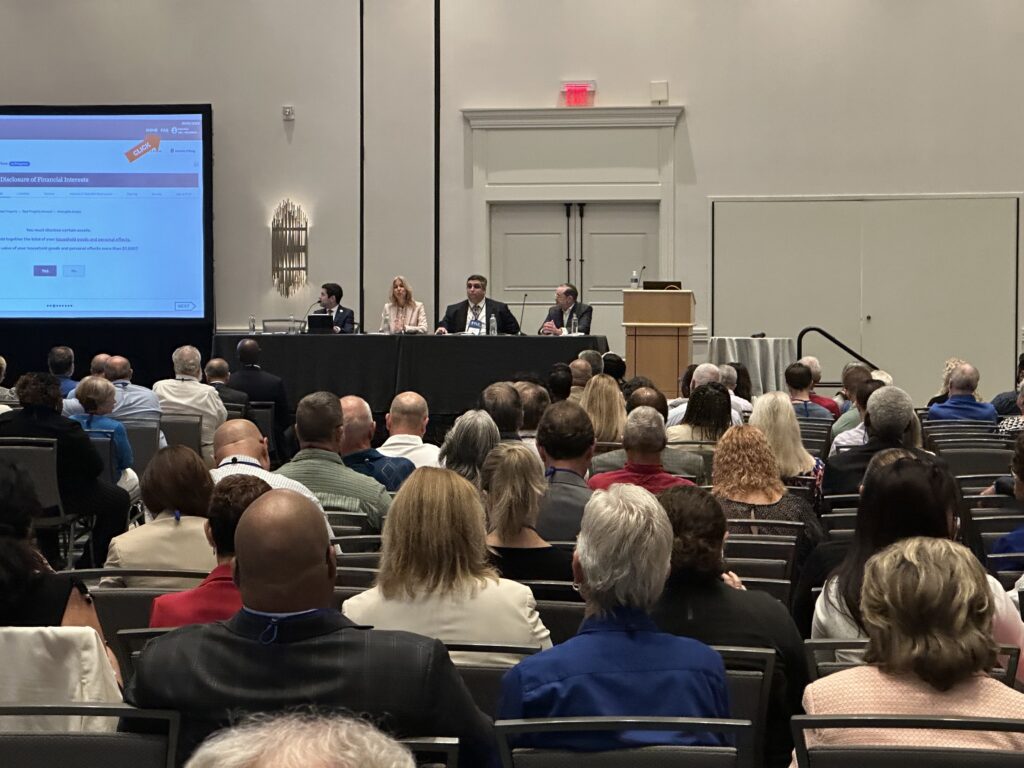
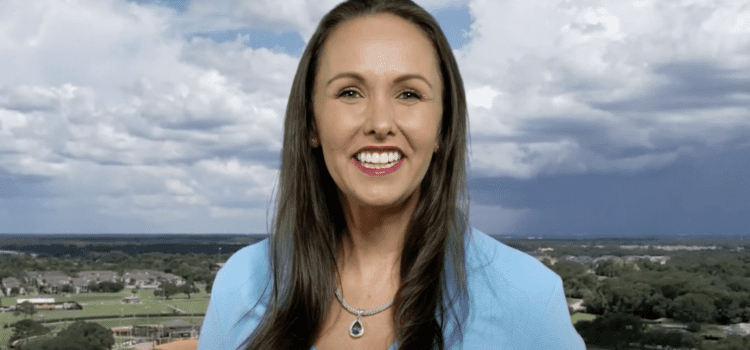
Hello, Winter Springs! I’m Victoria Colangelo, your City Commissioner for District 2. I’m deeply honored to serve you and be a part of the important changes happening in our beloved community.
The last six months have been a period of intense scrutiny and change, ignited by my election. One of the significant outcomes was an audit conducted by the Seminole County Clerk’s office. It uncovered a notable deviation in the use of sales tax revenue, initially intended for infrastructure improvements. Although I did not instigate this audit, I have been tenaciously advocating for the responsible management and replenishment of these funds.
Moreover, I am committed to tackling the challenges related to our aging wastewater treatment plants. These facilities carry high maintenance costs and require urgent reconstruction. As your representative, I pledge full transparency in managing these critical projects and promise to provide regular updates to keep you informed.
My vision for Winter Springs is a city that is sustainable, resilient, and always prioritizes its residents. I remain resolute in my mission to address our water infrastructure issues, promote fiscal responsibility, and push for an updated wastewater management system. Together, we can build a future for Winter Springs that we can all be proud of.
To stay connected and up-to-date with the latest developments, I invite you to visit my website, www.victoriaforwintersprings.com. I’ve created this platform to ensure you have access to timely updates and news about our city.
Your opinions, concerns, and feedback play a vital role in shaping our city’s direction. If there’s anything you want me to address or investigate, please don’t hesitate to contact me at victoria@mitigationbankinginc.com. Remember, I am here to serve you, and your voice matters.
Thank you for placing your trust in me. I look forward to hearing from you and continuing to work together for the betterment of Winter Springs.

Seminole County is making significant progress towards implementing a land conservation program. During a meeting on Tuesday, the Seminole commissioners agreed to proceed with establishing a countywide initiative aimed at acquiring environmentally sensitive natural lands for conservation purposes and passive recreation. This program would safeguard open areas from sprawling developments.
Commissioner Lee Constantine expressed support for the proposed initiative, known as Seminole Forever, emphasizing that if implemented, Seminole County would be the first in the state to undertake such an endeavor. Constantine acknowledged the vital importance of conservation lands to the community and assured citizens that there would be no additional taxes imposed on them to fund this program.
Under Seminole Forever, the county would establish a seven-member advisory committee responsible for recommending lands to be purchased for conservation or passive recreation. The committee would also devise maintenance and operations plans for the acquired lands. Additionally, the program would allow the purchase of lands to protect waterways, wetlands, and potentially accommodate hunting as a form of passive recreation.
Commissioner Jay Zembower suggested that hunting opportunities should be considered, as hunters and fishermen contribute as taxpayers and are known for their conservation efforts. However, the current hunting ban on county-owned lands received support from the other commissioners, indicating their disagreement with overturning the ban.
Zembower also proposed using Seminole Forever funds to purchase land for farming and agriculture, including community gardens. However, Commission Chair Amy Lockhart expressed concerns about the potential environmental impact of farming activities such as pesticide and fertilizer usage.
Paul Owens, the president of 1000 Friends of Florida, a nonprofit advocating for smart growth, urged the commissioners to promptly launch Seminole Forever, emphasizing its significance as a new paradigm for the state. He warned that delaying the program could result in permanent land loss, particularly considering Florida’s rapid population growth.
Owens and others suggested that the county’s annual contribution to Seminole Forever should be increased to 6% of its non-ad-valorem revenue, amounting to approximately $3.5 million based on the current budget. However, a resident named Bill Hyde expressed concerns about the impact on tax revenue when land is removed from the tax rolls, urging the commissioners to carefully consider the implications.
Joe Humphreys, another resident, disagreed with Hyde and emphasized the great opportunity Seminole County has to preserve undeveloped land. He highlighted that urban sprawl does not generate sufficient revenue to cover its costs.
It is worth noting that while eight Florida counties have passed referendums to establish or maintain local land conservation programs through tax increases, Seminole County would be unique in funding its initiative through the general fund instead of relying on a tax hike, according to Commissioner Constantine. He also pointed out that properties near conservation areas tend to experience increased value for homes and businesses.
Commissioner Constantine expressed his excitement about the progress being made and assured the community that the steps being taken would ensure a high quality of life for Seminole County residents, which they rightfully deserve and cherish.
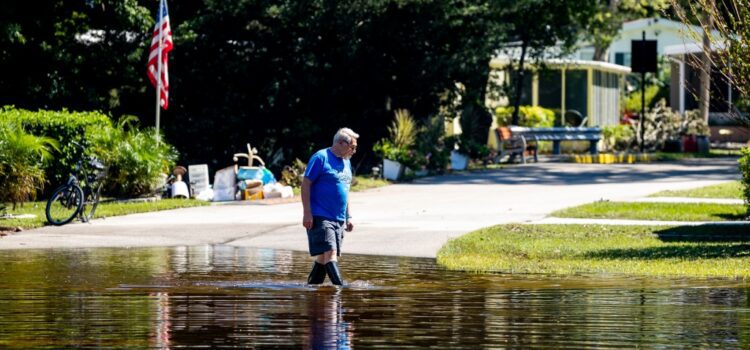
A moratorium on growth enacted by the Winter Springs City Commission in early January has been extended through July 27 while the city implements a new stormwater policy for developers to follow.
The city adopted the original moratorium to temporarily halt new development projects while improvements were made to its stormwater infrastructure following flooding that occurred as a result of Hurricane Ian. The commission voted on March 27 to prolong the moratorium by another 90 days to allow more time for new stormwater standards to take effect.
While at least one apartment developer has backed out of plans for a lower-rent community during the moratorium period, it hasn’t prevented other concepts from coming forward.
Recently, a preliminary plan was presented to bring million-dollar homes to the shore of Lake Jesup.
The latest discussion on the moratorium came after commissioners voted on a game plan for its stormwater systems. The commission directed staff to move toward a policy that aligns with how the Florida Department of Transportation handles its projects.
David Hamstra, stormwater department manager with Pegasus Engineering who brought forward improvement recommendations to the city, said the new direction would result in stormwater ponds accompanying development projects to be built a little larger than what’s currently required by the city.
“This seems to be a good upgrade without getting too far out of the norm,” he told GrowthSpotter. “If engineers (for developers) have been doing this for a while, it will not be a significant increase on their time and effort for those who have done (projects) before through the DOT. As far as the cost to a developer, it’s hard to say. The ponds may get a little larger, maybe by about five percent, but I don’t think they will get much larger than that.”
The DOT follows a model called “Critical Duration Analysis” when it comes to determining the size of stormwater ponds for projects.
FDOT defines it as the following:
“Critical Duration means the duration of a specific storm event that creates the largest volume or highest rate of net stormwater runoff for typical durations up through and including the 10-day duration event. The critical duration is determined by comparing various durations of the specified storm and calculating the peak rate and volume of runoff from each. The duration resulting in the highest peak rate or largest total volume is the “critical duration” storm.”
Hamstra said it requires the developer to evaluate a various number of storm events as opposed to a single one.
“It’s more wide-ranging,” he noted. “They have to make sure the ponds are big enough so they can address large and small storm events of different durations.”
City leaders wanted to find an approach that wouldn’t be too restrictive to developers.
This option is “a proven design approach by the DOT, which has the most facilities in the state,” said interim city manager Philip Hursh. “Without being subjected to lawsuits, you can stand behind the DOT because it’s a proven and sound approach.”
After moving forward on the stormwater plan, the commission then voted unanimously to extend the moratorium that was originally set to expire on April 9.
As part of that extension, the commission stipulated that the moratorium would end upon passage of the new stormwater requirements.
Developers can still bring projects forward for review by staff during the temporary moratorium as long as the applicant agrees to the amended stormwater management and drainage standards adopted by the City Commission.
According to city records, there are 17 development projects currently in some stage of the review process in Winter Springs. One of these projects introduced recently for preliminary review is an upscale 14-lot subdivision on the shores of Lake Jesup. The million-dollar homes would feature a contemporary modern architectural style, according to materials submitted to the city.
Sean Glickman with Colliers International gave a presentation about the concept at the April 10 city commission meeting.
“We believe that a more luxurious style and more contemporary style will be more attractive for the highest payers of taxes that are looking for these types of homes,” he said. “I believe this subdivision will fit very nicely within the area of the town center, but also enhance it dramatically because of the contemporary, European, and luxurious feel.”
He said he believes the homes would sell in the $2 million and $3 million range. City commissioners encouraged the development team to pursue the project.
But at least one developer has abandoned plans amid the moratorium. Third Wave Development wanted to bring one of the company’s Avid-branded apartment communities with 80 units priced below market rate to the city. However, when the company’s CEO Chuck Hollis presented his concept to the commission in January he got little feedback and direction.
“Apartments are a tough one in Winter Springs,” Mayor Kevin McCann told Hollis.
Days later, Hollis informed city staff that he was no longer pursuing the project.
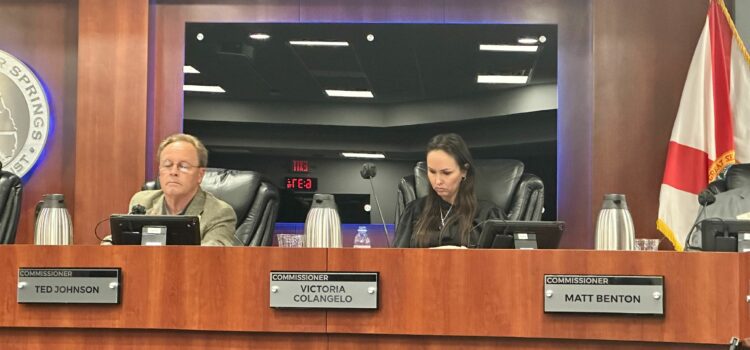
I have proposed at the Commission Meeting on January 8, 2023; that we should consider implementing a Video Live streaming meeting. On behalf of the residents, I believe this is important because it provides transparency and accessibility to the public. By live streaming, citizens can stay informed about the actions and decisions being made by their elected officials and can easily access this information from the comfort of their own homes. This also ensures accountability and open communication between the government and its constituents, allowing for greater civic engagement and a more democratic society.
Thank you!
Victoria Colangelo